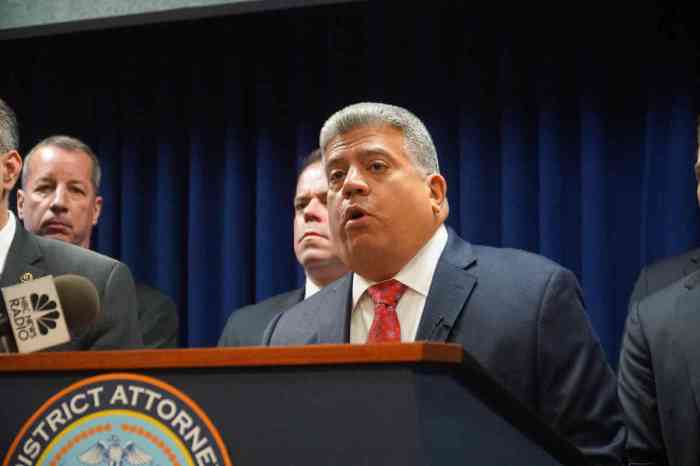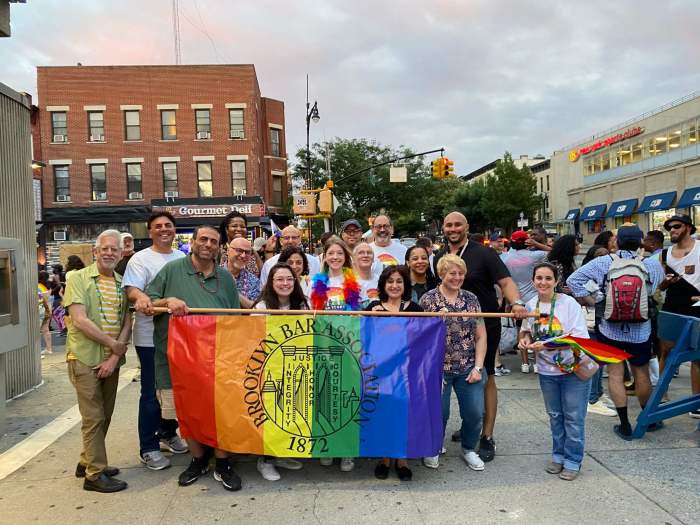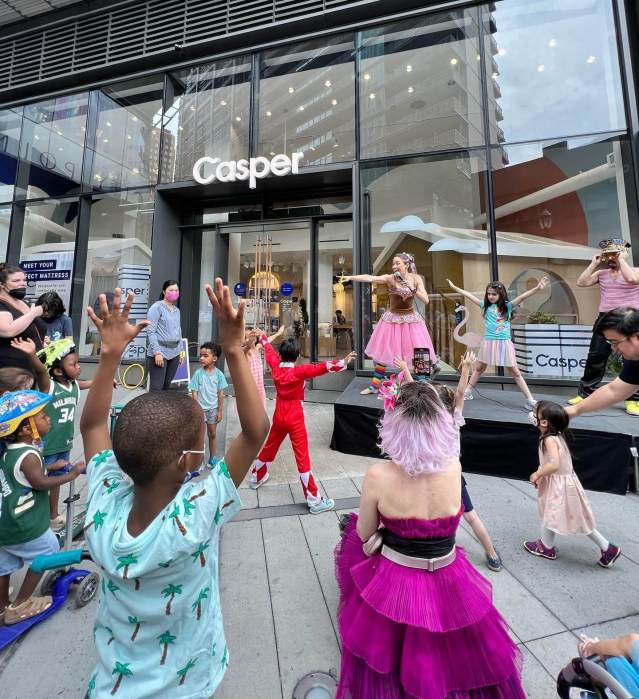New York City schools are out for the summer, but the coming school year is already looming large in the minds of students, parents, and teachers. On June 10, the city reached a deal with the City Council on the Fiscal Year (FY) 2023 budget that will cut $215 million from the public school budgets, and reaction has ranged from worry to disappointment and even anger.
The budget cuts were originally announced back in February, according to Chalkbeat, and Mayor Eric Adams’ proposal back in April showed a $1 billion reduction, mainly because federal coronavirus funds had dwindled.
“It is not a good thing for our schools,” said Meryem Bencheikh-Ellis, a member of Community Education Council 13, which covers Fort Greene, Clinton Hill, and parts of Bedford-Stuyvesant. “Many of my school liaisons — many of the principals are already in the red, and while they are planning for the budget for next year. So, it’s terrible.”
Annie Tan, a special education teacher in Sunset Park, said morale among her colleagues is low. Many worry about what will next year look like, or if they will still have a job at all.
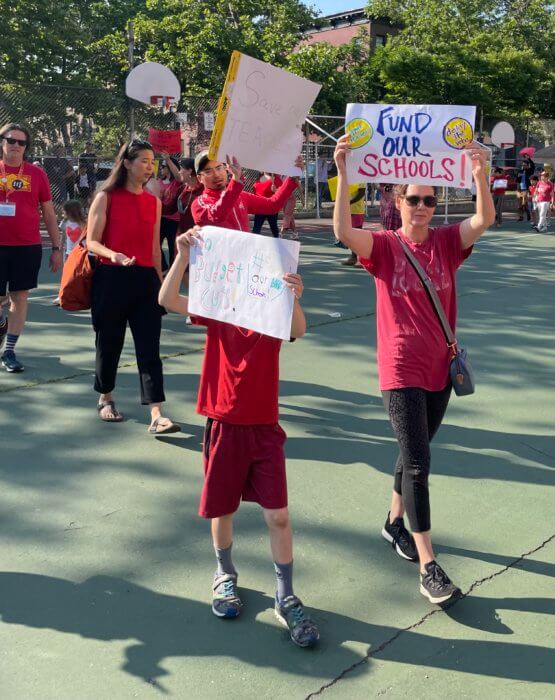
“We’re excessing 16 teachers,” she says, referring to the teachers who will lose their positions at schools but will still be employed by the DOE as floaters. “We’re losing all of our Chinese ENL teachers, which means we’re going to lose those people who are helping kids with speech and language, our Chinese speakers. They’re asking teachers to switch licenses and lose their tenure in the process to teach things that they’ve never taught before.”
Paul Trust, who teaches music in Park Slope, said he will likely be hurt by the cuts because of his level of seniority.
“It’s a great way to get rid of some of us older, higher-paid teachers,” says Trust who has been teaching since 2005. “If [my] school is able to scrape enough budget together for a music teacher, chances are … that’s going to eliminate any teacher at my level. They’ll have the budget for a first-year teacher or a first five-year teacher. There is an ageism kicking in too.”
Mayor Adams has attributed the cuts to the declining enrollment in the city’s public schools as a result of the pandemic. During the 2019-2020 school year, 1,002,200 students were enrolled in public schools. The number dropped by 8% during the 2021-2022 school year to 919,136.
But not everyone thinks that’s a valid reason.
“These cuts are for a projection of declining enrollment,” argued Nancy Randall, the PTA Co-President at P.S. 58 in Carroll Gardens, who helped organized a school-wide rally against the cuts last week before classes. “The [Department of Education] is saying we are losing a certain number of students when we’re actually not losing that number of students. They have underestimated the number of students that schools will have next year.”
Randall believes that DOE’s strategy is to give less money in September but then adjust for the budget in November when the enrollment registers close on October 31. Those funds, she said, will not arrive until January 2023, leaving principals scrambling in the meantime.
Randall, and others, insist the money is needed now.
“The cuts don’t match the under-enrollment,” said Tajh Sutton, president of CEC 14 in South Williamsburg and the program director of Teens Take Charge, a student-led education equity organization. “Schools will be losing resources for mental health and physical health. They will also lose art programs and teachers who understand their communities.”
Jessica Flores, a Prospect Heights parent teacher association president, agrees.
Last year, Flores campaigned against budget clawbacks where schools were supposed to give back funds due to dwindling enrollment, only for then-Mayor Bill de Blasio and then-Chancellor Meisha Ross Porter to give budget amnesty. Flores is frustrated to see this year’s budget cuts compared to her efforts last year, saying that with the budget cuts the dismantling of programs and activities can make schools less appealing to future parents.
“It doesn’t help principals market their schools,” she told Brooklyn Paper. “It doesn’t help us when we can’t say, ‘yes, we will have these supports for your students when they need them.’ It flies in the face of the idea that they want to have numbers rebound.”
Tan argues that, under this budget, there will be fewer special education teachers available, and those teachers who will be placed in special education classes will have less experience and understanding in teaching students. Randall expressed concern about her children and other kids who love their teachers but won’t be seeing some of them in September.
“We’re the faces that the students come in and see every morning,” Trust said. “They need consistency and they need familiarity. I am very concerned that they’re going to be losing that. It’s just trauma on top of trauma.”
Brooklyn teachers and parents also believe budget cuts will hurt the chances of public schools having smaller class sizes, as per a mandate created earlier this month that goes along with Mayor Adams’ mayoral control being extended by two years. If they are unable to afford enough teachers, they fear, schools will be unable to adhere to the mandate by having to consolidate classes under one teacher.
Educators also worry the budget cuts may push families toward charter schools — especially since the new schools commissioner, David C. Banks, previously came from that sector.
Charter school enrollment has increased by 9% since the start of the pandemic, according to the New York City Charter School Center. Some parents who Brooklyn Paper spoke with are questioning how much is being budgeted toward charter schools compared to the public schools — figures which are not open to the public.
“I’m not sure that the mayor is prioritizing public education all that much,” speculated one Crown Heights teacher, who requested anonymity. “He seems to have a fondness for charter schools and the fact that he appointed someone from out of the charter school movement to head up the city schools shows that he’s a fan.”
Of course, Brooklyn’s public school community is also placing blame on members of the City Council who voted to approve the budget cuts. Some, like Sutton, believe that it is “reprehensible” that those councilmembers voted, only to “make excuses,” particularly those who say they were told teachers will not lose their jobs.
“Schools are already in trouble,” said Sutton, stressing that schools are in need of more resources than ever as they work to help students recover from pandemic-induced trauma. “They started on the right path and now we have to go back to the drawing board. The schools will get terrible ratings and that will worsen the under-enrollment. This is a slap in the face to changes we were hoping to see.”
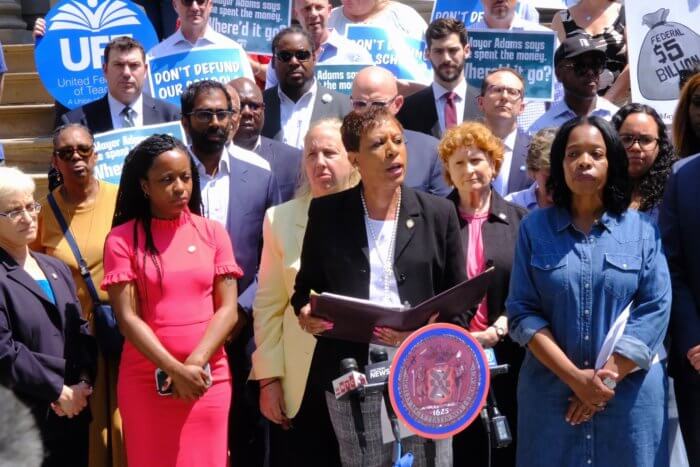
On Friday, June 24, members of the City Council took to the steps of City Hall to protest a city school funding cut of at least $215 million.
At the rally, Council Speaker Adrienne Adams said the issue at hand was not the overall city budget, which many on the steps that day voted to approve despite school budget cuts, but the city’s Department of Education.
“I want to be clear because this distinction must be made,” she said. “The issue at hand is one related to a DOE decision on school budgets — not the overall city budget. School budgets and the city are not the same thing.”
As the current school year comes to a close, and with smaller school budgets looming no matter which way they come from, parents and teachers preparing for the 2022-2023 school year seem overwhelmingly cynical.
“The way that this has been sort of rolled out sort of indicates to me [that] there’s no commitment to public schools,” said the Crown Heights teacher speaking anonymously. “I know sometimes there are times when finances are tight, and it’s quite a serious thing when our young people have to suffer and it seems to me that it should be dealt with in a serious and thoughtful manner, and I’m not sure it’s being dealt with that way.”
Some are even looking for new opportunities.
“This is the gratitude we get?” said Trust, who fears he may lose his position in Park Slope. “I feel like the city has stabbed its teachers in the back, this is the thanks we get for all that we did during a grueling period of time. It seems our attempt is unappreciated and it’s like why have I been killing myself when they haven’t been giving me any consistency?”
In response to parent and teacher concerns, a City Hall spokesperson maintained that schools across the five boroughs will continue to be fully and fairly funded.
“Budget updates are in response to changes in enrollment, however all schools continue to be funded at 100% Fair Student Funding (FSF). For arts programs funded by FSF, decisions on allocations are made at the school level, and Principals are working with their school leadership teams right now to program their SY22-23 budgets. Additional funding sources, such as academic recovery funding, also continue to support programs in the arts at schools,” the spokesperson said in a statement.
The rep also pointed Brooklyn Paper to other support Mayor Adams and Chancellor Bank have fought for, such as an increase in school guidance counselors and mental health resources.
“Earlier this year, the Mayor and Chancellor announced that our in-school support network of guidance counselors and social workers is 5,033 members strong. This scale of support guarantees that every school has — at minimum — access to a social worker, guidance counselor, or school-based mental health clinic, ensuring a solid foundation of care for all our students,” the statement continued. “The DOE continues to invest in social-emotional learning (SEL) to help build positive school cultures. SEL develops foundational competencies in problem-solving, communication, and cooperation.”

















